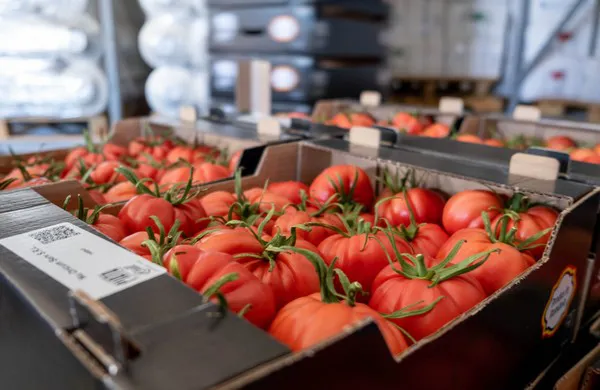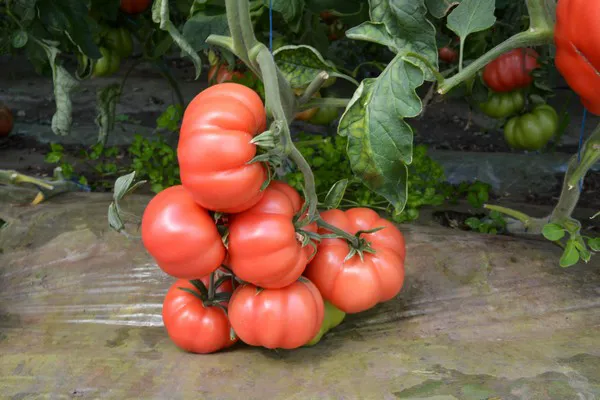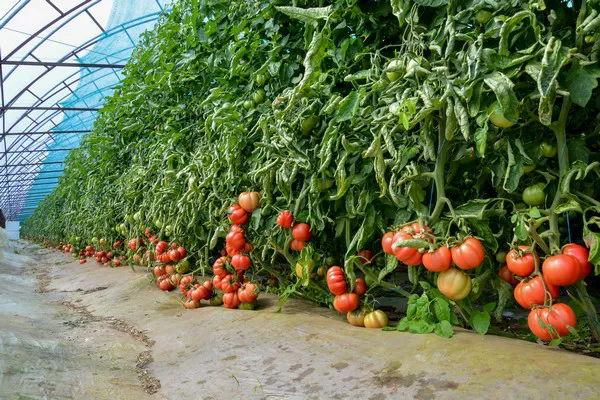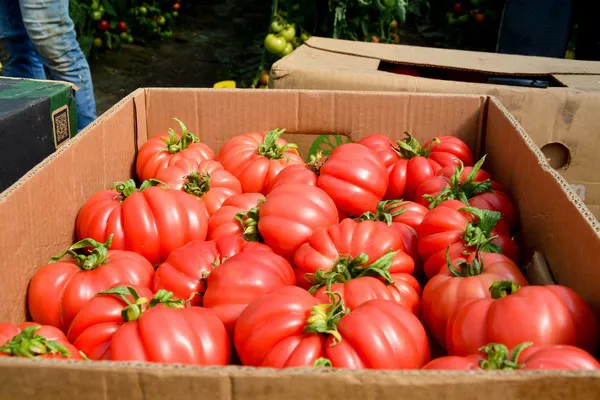The tomato is one of the most popular vegetables of Romania and the product is still gaining ground. One producer is working on new varieties, tailored to the Romanian consumer. They have noticed the traditional means of selling produce is still the most effective one for the market in Romania.
According to Inmaculada Duarte, marketing manager for Romanian vegetable producer Marcoser, the tomato is getting more popular in Romania as time goes on. “Romania is a country with a large agricultural area. When it comes to the cultivation of vegetables, the production generated by the Romanian countryside in 2018 was 3.36 million tons in total. According to Euromonitor data the consumption of vegetables between 2014 and 2019 has increased by 67.59%, with tomatoes being the product that has experienced the most growth since 2018. That growth stands at +3.8 kg according to data from the Romanian National Statistical Institute for 2018. The tomato ranked first in terms of consumption by the Romanian population.”

In Romania, the distribution chains have evolved over the past years thanks to financial investments by international retail chains, tackling the issue of disorganization and division: “When it comes to distribution in Romania, traditional markets continue to have a lot of weight, still responsible for 25.4% of the vegetable sales. The importance of these traditional markets is even more appreciated outside urban areas, where large distribution chains are forcing the reconversion of wholesaling, which is directed towards a mixed retail / wholesale model to the detriment of the traditional model. In Romania, local producers tend to be disorganized and divided, which is why in recent years, international retail chains finance Romanian cooperatives with the aim of increasing their market share and thus being able to expand their supplies of local products.” Duarte explains.

Duarte feels the forces in the industry should take advantage of the tomato’s increased popularity to enhance their tomato cultivation: “Taking the popularity and increase in sales into account, as well as seeing the relevance that tomatoes have for Romanian consumers, both farmers and food distribution chains like supermarkets, wholesalers, retailers or any other traditional markets should focus on the productive and nutritional quality of this vegetable.”
The company studies a wide variety of vegetables, but the research of tomatoes is the main task. “At Marcoser, being leaders in the distribution of agricultural inputs for the cultivation of vegetables in Romania, we are not strangers to this reality and that is why since 2017 we have applied the set of guidelines proposed by the Global Gap organization, to guarantee good agricultural practices in our test greenhouses. Our main study crop could not be other than tomato due to the relevance it has for producers and consumers in Romania. Thus, we dedicate 1ha to its production, in which we test different varieties of seeds and phytosanitary products that we think could be useful for growing vegetables in Romania.”

This year Marcoser is testing a new variety of tomato with pink skin, Duarte says. “During this season, we have allocated 3000 square meters to the cultivation of the HB101153 F1 variety, a Monterosa tomato type with pink skin and an appearance reminiscent of old tomatoes. This hybrid belongs to the Spanish house of seeds Semillas Fitó, which Marcoser distributes exclusively for Romania. Thanks to the exhaustive monitoring of the regulation that the Global Gap Standard proposes for vegetables, we can cover all stages of production, from pre-harvest activities, such as soil management and phytosanitary applications, to post-product handling like harvesting, packing and storage.”

“Global Gap helps connecting producers with markets where they can sell their agricultural products produced in a safe and sustainable way. Therefore, thanks to the fulfillment of this certification, in Marcoser we distribute our production directly to an international retailer that offers its consumers fresh local and innocuous products. This form of wholesale distribution and with all the guarantees of productive quality fulfilled, assures us a profitable double use of the fields that we dedicate to the testing of new products: On one hand, the sale of the production obtained at a higher price than the average and on the other, the verification that we produce in a respectable way, both with the environment and for the health of the population using the products we distribute and proving that they work for the development of vegetable crops in Romania.” Duarte concludes.
For more information:
Inmaculada Duarte
Marcoser
Tel: +40 756.711.763
Email: [email protected]
www.marcoser.ro
